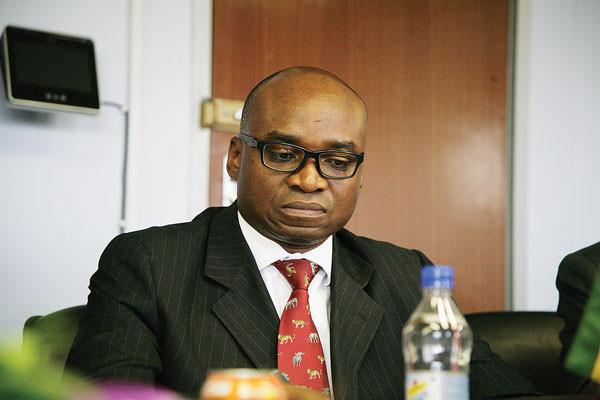
RESPECTED businessman and economist Nigel Chanakira says acceptance of the new currency, Zimbabwe Gold (ZiG), will be difficult given that the majority still prefer the greenback.
The Reserve Bank of Zimbabwe (RBZ) launched ZiG and scrapped the Zimdollar last week after the latter had significantly depreciated over the past few months. In the first quarter of the year alone, the Zimdollar depreciated by slightly more than 260%.
Chanakira made the remarks at a post-2024 Monetary Policy and Outlook Conference yesterday which was hosted by NewsDay’s sister paper Zimbabwe Independent.
Chanakira asked the conference attendees who were close to 200 to show by raising of hands, which currency they preferred between the US dollar and ZiG and all chose the former.
He indicated that this did not bode well for ZiG’s longevity and showed a huge chasm between the monetary authorities and market.
“I am not sure we are there yet in terms of anchoring our new currency in the contextwhere you can trust it, believe it,” Chanakira said.
“If we are managers, professionals, and workers and we don’t want to be paid in something then the question that was raised, from a technical viewpoint, by Phillip (Tax and International Financial Reporting Standards expert Phillip Chambati) to say is the currency functional or not, then we have a fundamental problem.”
Chanakira was referring to the fact that the authorities still required 50% of taxes in US dollars, adding that the acceptance of ZiG would be difficult.
- Rampaging inflation hits Old Mutual . . . giant slips to $9 billion loss after tax
- Monetary measures spur exchange rate stability: RBZ
- Zim deploys IMF windfall to horticulture
- Banker demands $21m from land developer
Keep Reading
“We need to get back to basics. What is the role of a currency in an economy? How do we produce goods and services and how do we measure the volume of those goods and services and compete in a global economy?”
Oxlink Capital chief executive officer Brains Muchemwa said by not enforcing that all taxes be paid in ZiG, the government showed that it had no interest in the local currency.
“The government has no interest whatsoever in the local currency and I think the conversations in the monetary policy should really be between the RBZ and the Ministry of Finance. Those are the two people that should be having these conferences,” he said. “The RBZ on this side and Treasury on that side and the RBZ trying to convince the Ministry of Finance that guys you can’t be asking us to issue a currency that you do not want to support.”
He added: “The currency is not supported by the central bank as many people would think, that’s not the case and that’s why for many years everything that they have tried has failed because the currency is supported by its issuer and in this instance, its issuer is the government of Zimbabwe.”
Muchemwa said the government must levy value added tax and payee tax only in ZiG to show confidence in it as lack thereof could prove costly.
“Business was hoping that we will get an MPS which can now set us on a direction which can localise our costs. The biggest problem we have in business is that our cost base is US$-based and that makes us very uncompetitive so we were looking for a Monetary Policy Statement position that can fit the localisation of those costs,” Employers’ Confederation of Zimbabwe economist Misheck Ugaro said.
“So, we are for localisation from US$ to local currency. As to whether the ZiG is the answer, is another question, the jury is out but the spirit is acceptable.
“And, I can say that in the Tripartite Negotiating Forum (TNF) two of the positions that had been put forward are manifesting in this policy the first one being government must tax in local currency.”
He, however, said the business community was upset with the fact that the taxes to be paid in ZiG were only partial, not 100%.
“And as Brains [Muchemwa] said, they have done that but have not gone the full way as the TNF proposed. We think the QPDs (quarterly payment dates) are not enough so we need the government to actually tax, collect all of their taxes, and we are not mincing the words — 100% should be ZiG as a starting point.”
Experts agree the success of ZiG will be dependent on the demand for the local currency.










